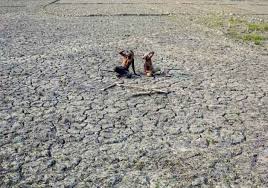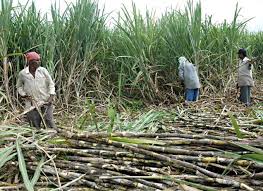Politics of sugar, subsidiarity principle and whither innovation
Many social segments of the country are feeling that their voice is perhaps not being heard adequately. This could also be a consequence of lack of clarity about the major policy shifts. In some areas, we are continuing with the same policies even if change is warranted. For instance, despite thousands of villages in Maharashtra suffering from drought, the subsidy for sugar export has been increased. If the sugar prices had been allowed to come down, some land use changes could have come about. Some water could be diverted for food crops instead of growing sugar cane, which consumes far more water per unit of output than other crops. The distributed gain in the income in larger number of households will provide a better pull for economic growth than still higher income for the same affluent farmers. During the Shodhyatra in Wardha, the neglect of in-situ water conservation was so obvious. It would have been useful to bring thousands of farmers to Saurashtra to see how the frequent droughts have become a matter of history through lakhs of small-scale on-farm water conservation measures.
In various sectors, there is a need to look at innovative solutions to ensure growth with distribution to improve welfare and reduce dependence on less or unproductive employment programmes. The sectoral and the state innovation councils need to be re-organised and re-energised. Instead of only discussing ideas, they should also be empowered to design specific policies and even projects to solve inter-sectoral problems in a time bound manner. The National Innovation Council also needs complete recast in its framework and operational ethos. There was not one idea which we could operationlise during its three years existence. Obviously, such a body will spread cynicism rather than hope. When the central government is seeking ideas from the masses, the idea of crowd-sourcing should become one of the major instruments for connecting with creative people at different levels of society. We have still not tried to tap the minds of more than 20 million people travelling by train everyday though the first note was sent in 2009 and idea was developed in 2006. Too much of introversion cannot be compatible with openness of the policy making process. One should report on the website whichever ideas are accepted or developed further so that faith of people in giving feedback gets reinforced.
Too much reliance only on internet will mean millions of people without access to internet remain out of the consultation process. The urban bias will be inevitable in the policy making process. Triggering entrepreneurial process in every district can give a new interpretation to the District Innovation Fund. Unfortunately, the guidelines of the Ministry of Finance were so constraining that much didn’t happen for a long time. And whatever use was made was certainly not intended to promote innovative programmes, projects and initiatives by individuals. This is another programme which needs to be completely redesigned. The investment of this fund should be shared on the website of the district so that a public scrutiny takes place. Periodic reports should be published in the local newspapers. Higher the accountability, lesser the chances of misuse of funds. Instead of distrusting local level non-officials and officials, we should follow the subsidiarity principle, i.e., the decision must be taken as close to the point of action as possible. There has been a tendency to centralize the power and make village, block and zilla parishad less and less effective. The institution similar to public accounts committee headed by opposition MLA or leader should be created at block and district level to trigger creative tensions in the decision making process without undermining the larger social good. Democratic institutions lose their internal democracy when the top level leadership does not decentralize. The power of ideas existing at the grassroots level can provide a healthy redirection of agenda of every institution in health, education, industry, employment, rural and agricultural development, etc. The reforms in agricultural sector have been delayed far too long. It is hoped that the new budget will herald many new ideas for unleashing the power of imagination, involvement and engagement at local level.
http://www.dnaindia.com/mumbai/report-drought-hit-solapur-grows-water-guzzler-cane-1809327


